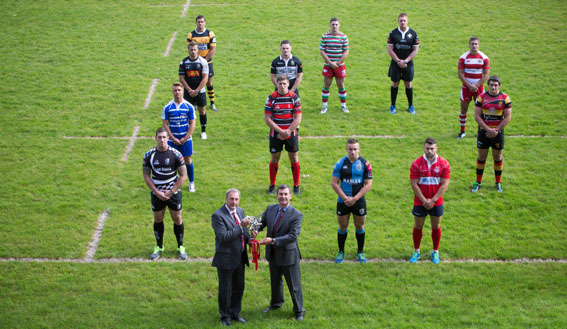This article appeared on the South Wales Argus on Thursday 30th August 2018 and is reproduced here to show solidarity with our fellow clubs and allow members of Bedwas RFC to appraise the situation.
The Premiership gets under way this weekend with 16 clubs battling to avoid the drop to the Championship.
Earlier this year the WRU announced the end of ring-fencing and a return to a 12-team Premiership in 2019, a move that leaves up to five teams at risk of relegation.
It was part of shift by the governing body in a bid to bridge the gap to professional rugby.
They have introduced the six-game Celtic Cup that will feature four regional sides predominantly made up of under-23 players and fixtures against Irish opposition.
However, Premiership clubs have concerns about being marginalised in the development of future talent and rather than having their funding cut believe that investment should be made in their league.
They presented proposals for a ‘Super 12’ to underpin the pro game, working closely with the regions.
The Premiership clubs suggested increasing coaching time and setting a playing budget of £200,000 with a specific age-grade quota and a support budget of £75,000. They proposed that the WRU would provide a maximum of £150,000 per club.
Their suggestions got short shrift from the governing body, and the clubs have urged Union bosses to reconsider their approach.
“All Gwent Premiership clubs are united in this, this isn’t one club or individuals, this is across the board,” said Jon Jones, chairman of Ebbw Vale.
“We are five clubs that fight for players and compete hard on the field, but we are totally united about what has been put in front of us and the process that was used.
“All 16 clubs have real issues over that. We submitted a presentation to the Union but never had a formal response to it, which I find amazing.
“As part of that we submitted a set of detailed questions that asked if they had really thought this through. We have never had answers.
“What was voted through was an under-23 league based on the principle that it would be full squads that would train full-time with separate coaches, that it wouldn’t be thrown together like a British & Irish Cup side, that it would play throughout the season.
“We were initially told that we wouldn’t be required, that no players would play in the Premiership but all the coaches have had an email that there is a [Dragons versus Ospreys] friendly, the first team playing [Benetton] but there is still a list of players who are allocated to the Premiership.
“It’s a really confused picture. None of this stacks together. The only way that they can come back from what they are proposing is if they put their foot on the ball and realise what they are doing, but I fear ego is not going to let that happen.
“There is no plan and if you look at the way this has been handled there is no analysis of where this is going to go and ‘what-if’ scenarios.
“Lots of people in the Premiership have lots of experience of running businesses and doing analysis when you make substantial change.
“This is the worst ‘change management’ programme that I have seen, you could put that in front of university students as a case study of how not to do it.”
“I really don’t understand what their goal is,” said Bedwas chairman Mark Lewis. “I just want them to be honest, do they want the Premiership to be amateur?
“But it has already been proved that the Premiership plays an important role in development, while the British & Irish Cup and Anglo-Welsh Cup were catastrophic failures. Now they are trying to put another level in again and give it another whirl.
“There are 16 clubs with a lot of rugby knowledge and that has all been dismissed, and I don’t think they will backtrack over this.”
“Trying to get back to where we are now would be a massive ask after these changes,” said Newport fixture secretary Michael Frost.
“The calibre of the players that the Premiership has produced and provided a stepping stone from the academies has been forgotten about.
“A batch of six games is not going to help in the development [of under-23s] because of the big gap in fixtures.”

